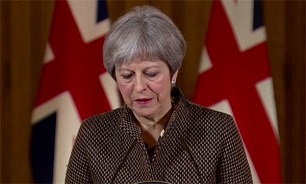UK PM Accused of Lying About '30 Labour MPs' Backing Her Brexit Plan
 Several briefings suggested earlier this week that Conservative whips had private conversations with "up to 30" Labour MPs in order to persuade them to vote for the deal with Brussels.
Several briefings suggested earlier this week that Conservative whips had private conversations with "up to 30" Labour MPs in order to persuade them to vote for the deal with Brussels.
However, MPs mentioned in the reports all denied that they had been contacted by the Conservatives about supporting any deal.
Some of the Labour MPs explicitly named in reports, including Lisa Nandy, Gareth Snell, and Caroline Flint, told the Business Insider that they had never been approached by anyone in the Conservative Party, while multiple other Labour MPs rejected the claims as being entirely fictional.
May’s government chose the MPs because they represent constituencies which voted for Brexit in 2016, according to reports.
However, Flint, who has voted against the Labour whip on Brexit in the past, said, "I can confirm categorically that I was not approached by Number 10, government whips or anyone to persuade me to support a deal", adding that "nor am I aware of anyone else who has been approached".
Kate Hoey, perhaps the Labour's most high-profile pro-Brexit MP, also said nobody had approached her about the issue, in spite of having voted with May's government on numerous pieces of Brexit legislation.
Labour MPs from Leave-voting seats, who are among the "dozens" reportedly contacted and persuaded by Conservative whips, also rebutted the claims.
Such a claim is "nonsense," Gloria Del Perio, the MP for Ashfield, told the Business Insider.
Louise Haigh, who represents a seat in Leave-voting Sheffield, also ridiculed the reports, saying, "Is the list just the whole parliamentary Labour party?"
Some Labour MPs in Leave-voting seats said they were surprised that the Conservatives had not stayed in touch.
"I’ve not had any approaches from Tory whips or for that matter any Tory," Karl Turner, the MP for Hull East, told BI, noting that "I’m surprised given that Hull East was the highest Labour held constituency voting leave (73.6%). I’ve recently surveyed the constituency and few are changing their minds".
The EU and Britain had hoped to reach a deal on Brexit by October. However, hopes for such an agreement were dashed last month during an informal EU summit in Austria where EU leaders criticized Britain’s proposals on trade and the future state of the border in Ireland.
Message end/
